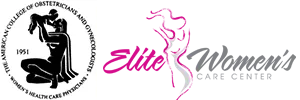
Urinary incontinence happens when an individual can’t fully control their bladder, resulting in them experiencing leakage. Most women have experienced weakened bladder control at some point in their life. It’s especially common during pregnancy and for a while after. But when do a few accidents indicate a problem? An Obstetrician-Gynecologist (OBGYN) can help with all matters related to women’s sexual and reproductive health. Schedule an appointment with your OBGYN if urinary incontinence starts happening frequently or affects your quality of life.
Before Your Appointment
First, don’t be embarrassed about discussing this with your OBGYN. They are a medical professional designed to help you. There are also a few ways to be prepared for your appointment. Try to keep track or write down every instance of urinary incontinence. Record the amount, time of day, frequency, and what you were doing at the time.
Types of Incontinence
There are two main types of incontinence that a patient can experience: stress and urge. Stress incontinence happens when pressure is placed on the bladder, forcing leakage. This can happen from any sort of muscular contraction, like sneezing or laughing. Urge incontinence is an overactive bladder. A patient may constantly feel like they need to go to the bathroom. This makes it hard to determine when they do need to go or not, causing accidents to happen.
Other causes of urinary continence are also a possibility. Certain foods, drinks, and medications can temporarily affect bladder control. These are known as diuretics, and affect how much urine your body produces.
Common diuretics:
- Caffeine
- Carbonated drinks
- Alcohol
- Artificial Sweeteners
- Spicy, sugary, or acidic foods
- Chili peppers
- Chocolate
- Blood pressure and heart medications
- Muscle relaxants and sedatives
You should also talk to your OBGYN about the possibility of overflow or functional incontinence. Overflow is caused by blockage of the urethra or poor bladder contraction. Functional incontinence is the result of other medical conditions that make going to the bathroom difficult.
Treating Urinary Incontinence
Talk to your OBGYN about a treatment that is right for you. There are many possibilities and combinations to try. Many women find success through retraining their bladders, using certain medications, or possibly surgical intervention.
 Urinary incontinence happens when an individual can’t fully control their bladder, resulting in them experiencing leakage. Most women have experienced weakened bladder control at some point in their life. It’s especially common during pregnancy and for a while after. But when do a few accidents indicate a problem? An Obstetrician-Gynecologist (OBGYN) can help with all matters related to women’s sexual and reproductive health. Schedule an appointment with your OBGYN if urinary incontinence starts happening frequently or affects your quality of life.
Urinary incontinence happens when an individual can’t fully control their bladder, resulting in them experiencing leakage. Most women have experienced weakened bladder control at some point in their life. It’s especially common during pregnancy and for a while after. But when do a few accidents indicate a problem? An Obstetrician-Gynecologist (OBGYN) can help with all matters related to women’s sexual and reproductive health. Schedule an appointment with your OBGYN if urinary incontinence starts happening frequently or affects your quality of life. 